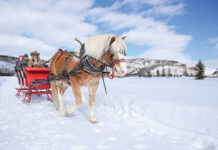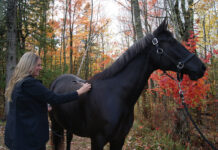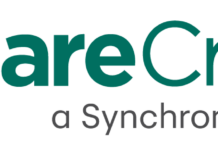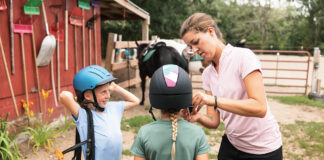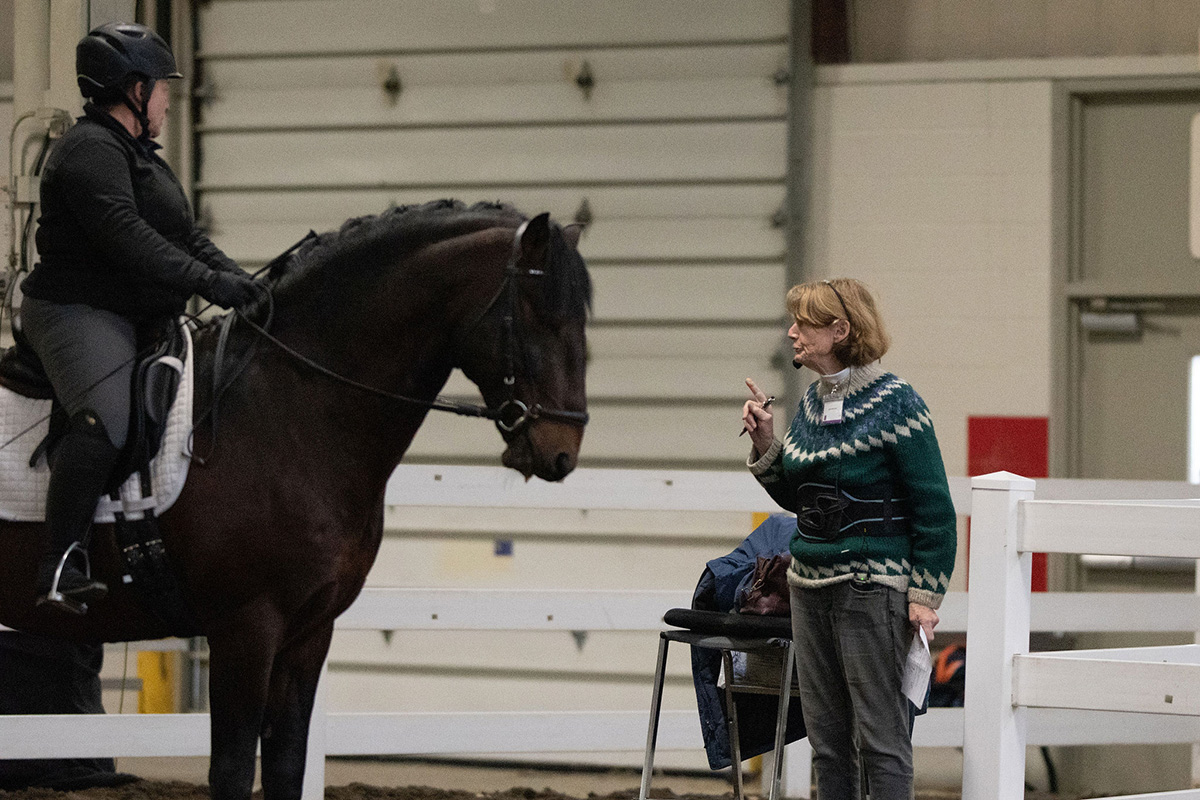
Jeanne McDonald paved her own path to success with the perfect blend of dogged New England determination, unwavering persistence, and a heaping dose of patience. She’s a Grand Prix dressage rider, a U.S. Dressage Federation bronze, silver and gold medalist, and a U.S. Equestrian Federation “S” 4* judge. Jeanne has traveled the globe judging national and international shows for over 35 years, and she was on the committee to write the 2019 USDF dressage tests.
In fact, it’s the exact opposite.
I seized the opportunity to sit down with Jeanne McDonald for an interview at Equine Affaire in Massachusetts in November 2023. I was thoroughly blown away by her… well, unpretentiousness. Her modest and decidedly down-to-earth conversational manner and “wicked” funny New England stories had us both laughing. Right away, I realized I was in for a treat.
Jeanne was born and raised in Boston, and although her parents didn’t always understand her love of horses, they supported her goals. But not “support” in the sense that they handed her the reins to a beautiful pony, paid for private lessons in a swanky barn, and made sure she only rode in luxury-brand breeches.
Instead, Jeanne mucked stables and groomed horses to make money to pay for her riding lessons. She got her start riding at New Canaan Mounted Troop when she was 8 years old. Jeanne was an equitation rider, jumper and eventer before transitioning to dressage—and she achieved it all through hard work, saving her pennies, and never giving up on her dream to someday have a horse of her own.
While working days in medical research at Harvard and waitressing at night to pay the bills, Jeanne would go on to become an active competitor, a USDF bronze, silver and gold medalist, and a distinguished judge. And since 1990, she has owned and operated Turning Point Farm—a beautiful dressage training, breeding, and boarding facility in Pennsylvania.
Julie Maddock: Was there a pivotal moment in your life when you realized you were meant for an equestrian career?
Jeanne McDonald: Honestly, my mother said that the first thing I ever looked at and pointed at was a horse and I was trying to say “horsey.” I think I got it from my red-headed grandmothers—both of them were horse people.
I wanted to be a vet, but they told me in 1967, “You’re a girl. We won’t take you for vet school.” Now look at it—it’s 90 percent women. But this was legal back then. So I went to the University of New Hampshire. They said it was the best pre-veterinary program. And at the time, Harvard Med was recruiting, so I started working there in medical research.
And that is when I started to get into horses on the riding end again. I never had my own horse until I was 33. My family didn’t have money; I didn’t have money. But then I started waitressing nights at a Lynn hotel—that was scary!—and later waitressed at Hilltop Steakhouse. It’s how I made all the extra money to buy my first horse, the blankets, the shoes… and I just never outgrew riding.
Julie: With over 35 years of judging experience, how would you define what makes an exceptional dressage rider?
Jeanne: I think it’s feel. Carl Hester and Ingrid Klimke are my idols because they’re real horse people. They’re not just dressage riders. They feel what their horse wants or does and they go with it. That’s what I think makes one exceptional. It’s feel, it’s talent, but it’s a talent for feel, not a mechanical talent. And that’s what I like to reward when I’m judging—the harmony because the feel is there.
Julie: What advice do you have for the adult amateur entering the dressage world and preparing for their first show?
Jeanne: Hey, that was me in 1980! On a borrowed mare! And I was working full-time at Harvard and waitressing nights and I went to the horse show. I was a true amateur.
I feel you have to make your own way in the world to be able to do horses full-time. And that is what some people don’t quite seem to understand. There are a lot of people looking for sponsorship. I don’t want to say you have to pay your dues, but I never had any help. And there wasn’t any amateur division. I was right in there with Lendon Gray and all these top riders in my first Grand Prix in 1987.
Julie: What’s next on the horizon for Jeanne McDonald?
Jeanne: Ride my mare every day. I don’t expect to be riding in any more international shows, but The Dressage Foundation’s Century Club—that’s my goal. It’s when your horse’s age and your age equal 100 or more. My goal now is to ride the mare I bred myself from a stallion I trained and make her my fourth horse to go Grand Prix in the Century Club. I’ve got a ways to go—six years—and I hope we both make it. I’ll be 80 ½ and Trysta will be 19 ½.
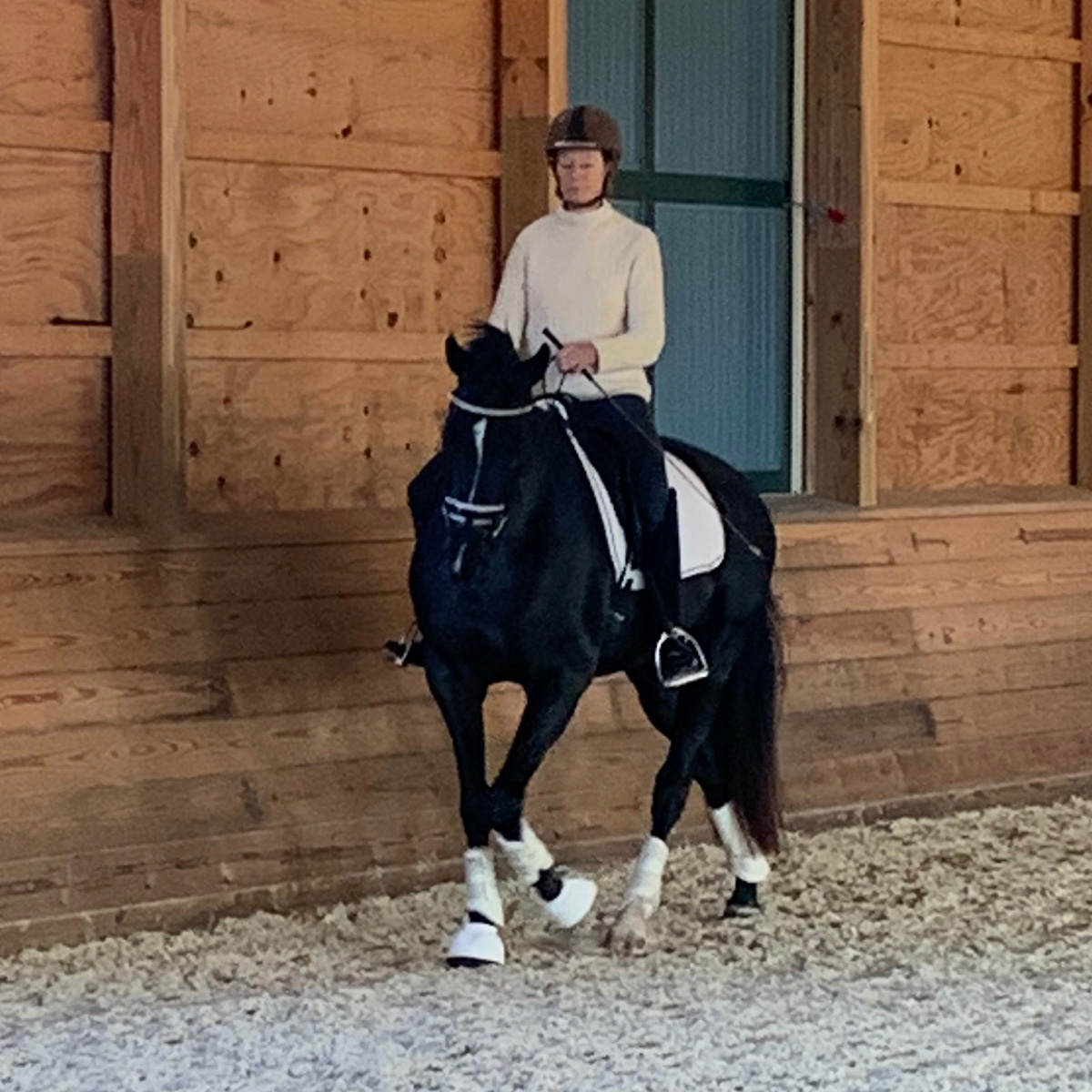
And after my conversation with Jeanne, I have no doubt she and Trysta will be there!
This Q&A with Jeanne McDonald is a web exclusive for Horse Illustrated magazine. Click here to subscribe!

